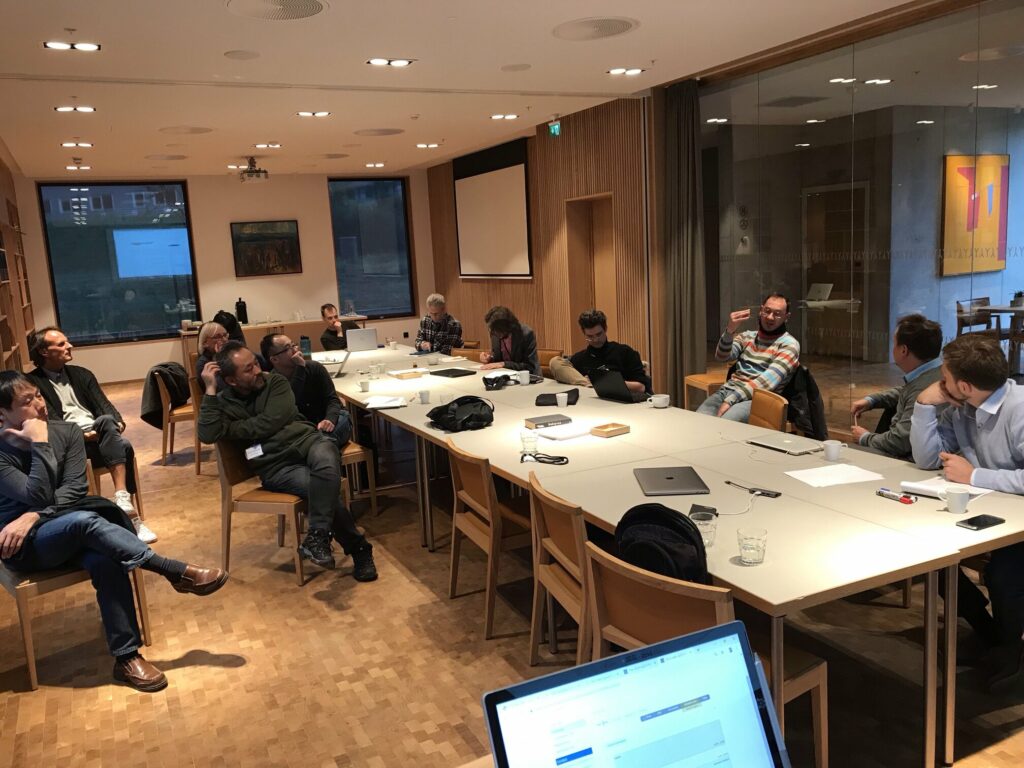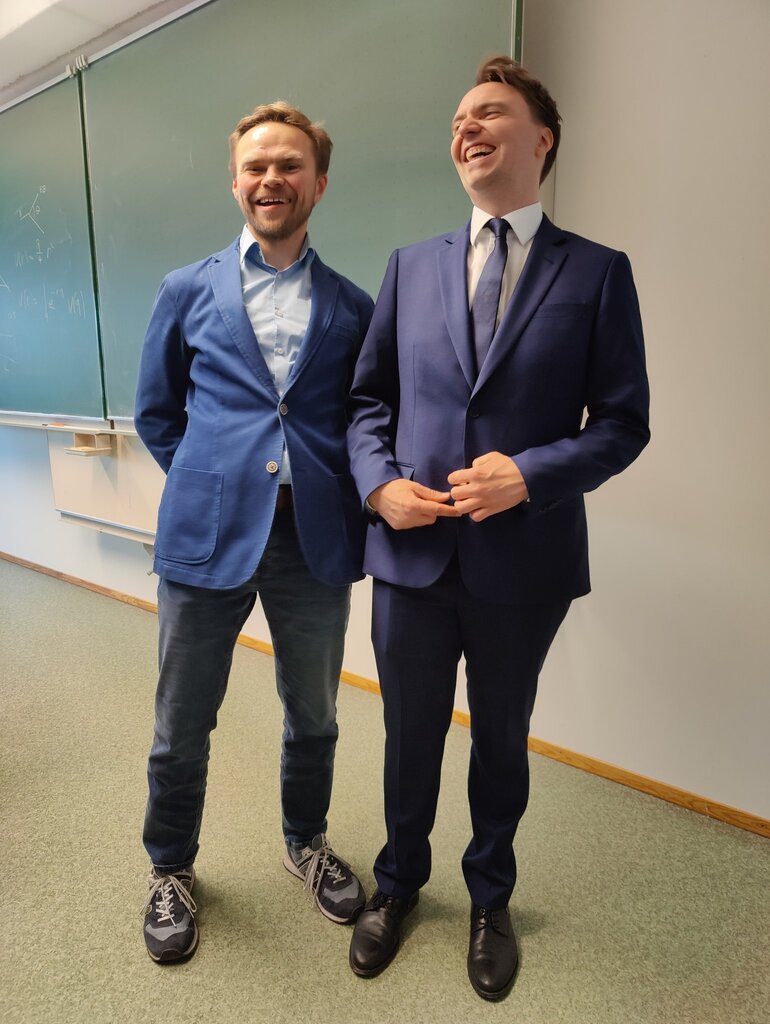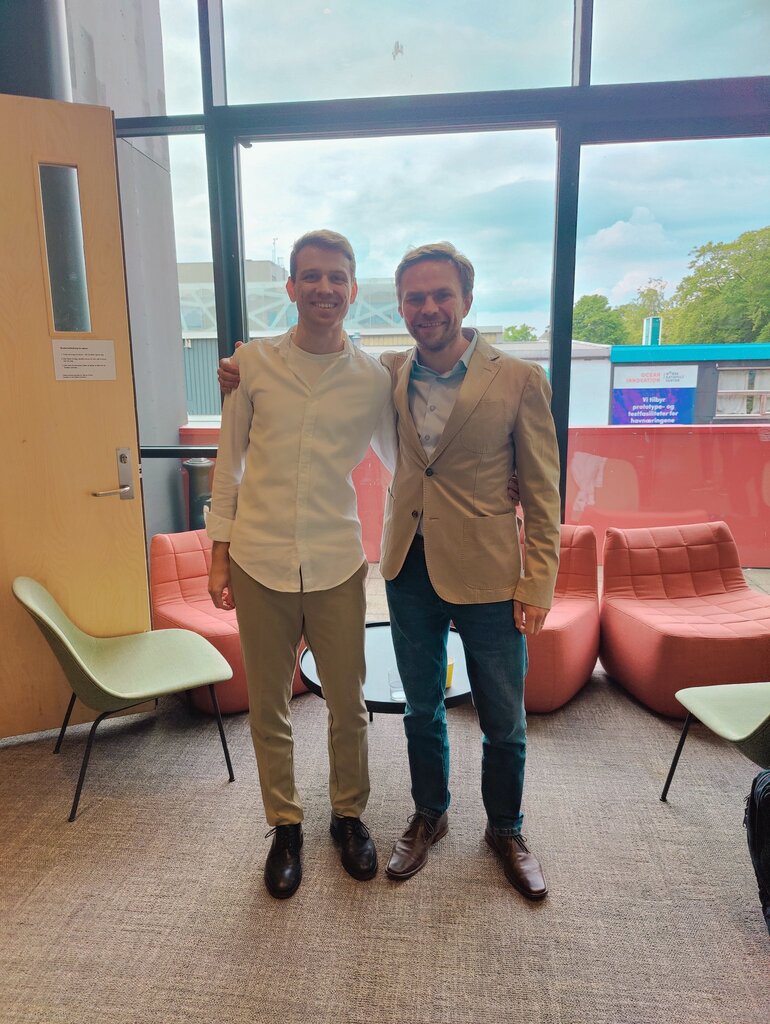Congratulations on completing your TMS Starting Grant, Konrad Tywoniuk!
Collisions of heavy atomic nuclei
In his TMS Starting Grant, Konrad Tywoniuk has studied and modelled the kind of matter that occurs in collisions of heavy atomic nuclei. Collisions between heavy atomic nuclei require that the atomic nuclei are located in environments that are so hot that the fundamental building blocks of nuclear matter, so-called quarks and gluons, are released. The state in which the atoms then find themselves is called a quark-gluon plasma. One method of doing this is to study how particles with high energy are deflected and modified in the quark-gluon plasma. This method stands out because it connects the knowledge we have from other particle collisions with the methods of nuclear physics to deal with dynamic and time-dependent systems. The problem is considered to be one of the most important open problems in research into nuclear matter at extreme temperatures. To study this further, Tywoniuk used theoretical modelling and machine learning to understand and analyze experimental data from collisions carried out at CERN in Switzerland and BNL in the USA.
Big Bang and accelerators
These studies are relevant in many contexts where researchers study extreme energies and temperatures: Shortly after the Big Bang, the universe is believed to have been filled with a hot, dense mixture of all kinds of particles that moved at speeds close to the speed of light. This mixture was dominated by quarks—fundamental bits of matter—and by gluons—carriers of the strong force that usually “glue” quarks together into protons, neutrons and other particles. This mixture is called quark-gluon plasma. In these first moments, quarks and gluons were completely free to move in the quark-gluon plasma, unlike in ordinary matter where the quarks and gluons are bound inside atomic nuclei.
The accelerator at CERN is designed to create conditions similar to those of the early universe, where collisions between massive atomic nuclei, such as gold or lead nuclei, can occur. Collisions between heavy nuclei form a small fireball where everything “melts” into a quark-gluon plasma.
The fireball cools instantly, and the individual quarks and gluons recombine into a mix of atoms/ordinary matter that rushes off in all directions. Much can be learned by studying the distribution and energy of this system.
Tywoniuk and his research team have developed new theoretical and numerical methods to learn as much as possible about the quark-gluon plasma.
New knowledge about jet streams
The project has also worked to bring new knowledge about jet streams to light. Jet streams are groups of high energy particles moving parallel to each other, they are rare but very instructive phenomena. Jet streams were first observed in accelerator-based experiments in the early 1980s. They arise from a single high-energy particle that has split by emitting many radioactive doses. This process provides the opportunity to test quantum chromodynamics, the theory that explains the properties and interactions of quarks and gluons. These jet streams also occur in heavy-ion collisions and can therefore be used as calibrated beams that measure the properties of the plasma (density, flow, etc.).
Project leader with international experience
Konrad Tywoniuk holds a PhD in physics from the University of Oslo and worked as a postdoctoral researcher in Spain, Sweden, and Switzerland before coming to the University of Bergen. He is employed as an assistant professor since early 2023.
Two PhD students and three master students worked on the project together with Tywoniuk and defended their theses successfully. The research team also comprised of two researchers who now lead their own research teams at other universities.
The Starting Grant funding helped the team to gain international visibility, as they could plan and host international conferences and were invited as speakers to present their research.
During the project period the team published 19 peer-reviewed articles, 16 conference proceedings and 2 report contributions.
TMS Starting Grant project
PI Konrad Tywoniuk
Department of Physics and Technology
Thermalising Jets: New Aspects of Non-Equilibrium Processes at Colliders
Funding period: 2018-2023



